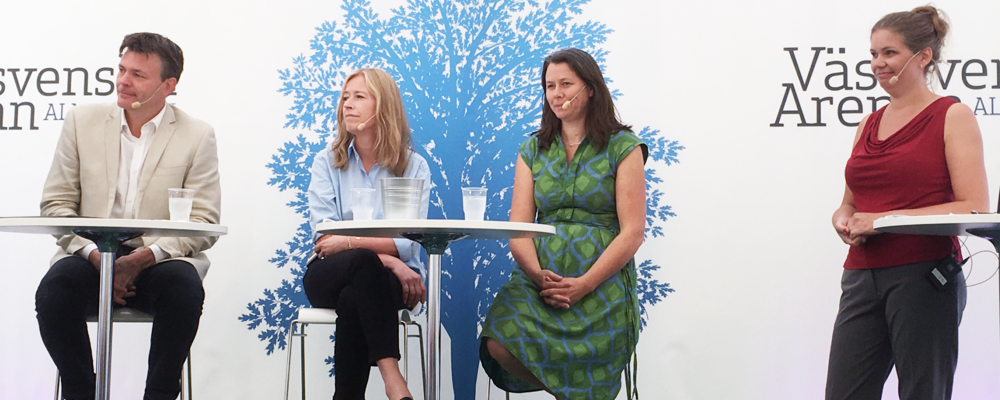
Our participation in Almedalen week
Almedalen Political Week is the most important and progressive political gathering in Sweden. It takes place in the capital of Gotland, Visby. Every year, for a week during the summer, politicians, business people, NGOs and investors from all over Scandinavia and other countries meet to discuss how best to foster the economy and enhance social objectives.
2017: "New chemical tax on electronics - what's the point?"
From 2017, there is a new tax on certain chemicals (flame retardants) in some electronic products (TVs, mobiles, tablets, white goods, etc.). The purpose of the tax is to reduce the occurrence, spread and exposure of hazardous flame retardants in people's home environment. Technically, it is the electronics that are taxed, but it is the flame retardants used in the products that the tax is supposed to target.
However, consumers who buy goods directly from other countries are not affected by this tax as the tax only applies on electronics that are purchased from companies within Sweden. Many have been positive, but there has also been hard criticism.
During this seminar, the new chemical tax was used as an example to highlight basic issues regarding taxes as a means of achieving an environmental goal.
Participants were; Mikael Karlsson (President, The European Environmental Bureau, researcher KTH); Åsa Romson, Member of Parliament, Chairman of the EU Committee (MP); Susann Lundström, Partner KPMG; Moderator: Pernilla Rendahl (FRAM)
The seminar was videostreamed and can be watched at the Facebook page of Västsvenska Arenan.
2016: "A party with toxic chemicals?"
What do we know about the hazard of chemical cocktails? And what can we do about it? In this seminar, we arranged a discussion with academia, industry, civil society and politicians on how to move forward towards a non-toxic environment.
The FRAM Centre Director, Thomas Backhaus, introduced the problems with chemical mixtures in the environment and Jessica Coria, who is the Chair of the steering committee, introduced the costs associated with chemical pollutions and solutions in term of suitable policy instruments. The introductions were followed by a panel discussion with; Mikael Karlsson (EEB), Lena Lundberg (IKEM), and Emma Nohrén (the Swedish Green party). The discussion were held in a mix of Swedish and English.
The seminar was videostreamed and can be watched at FRAM's Youtube channel.